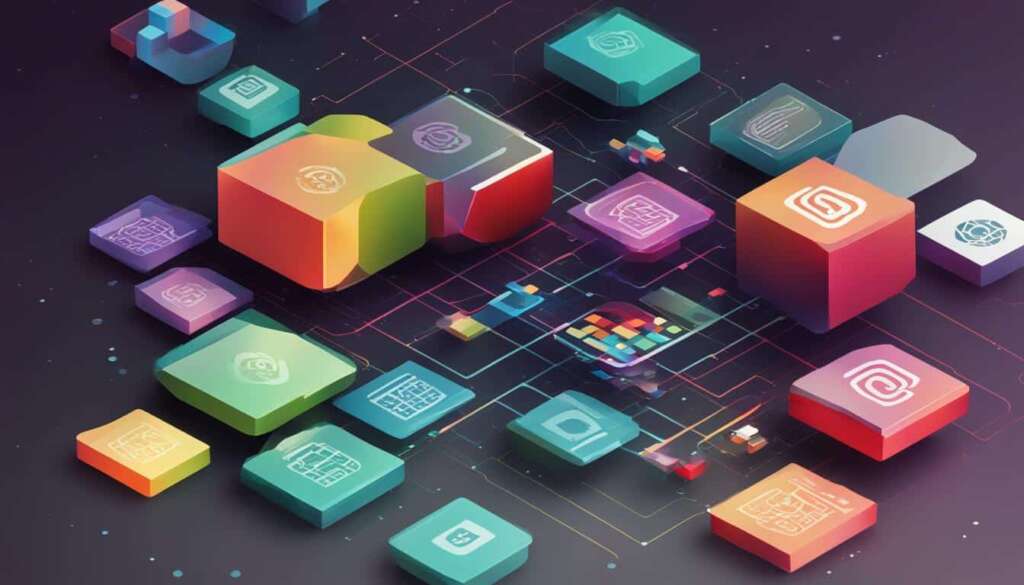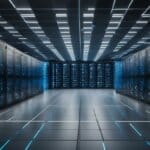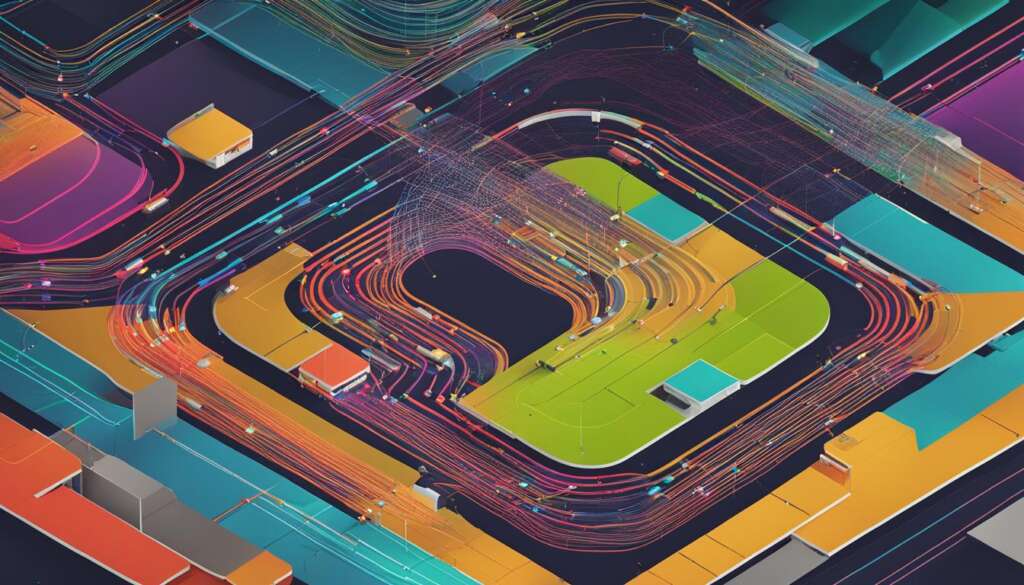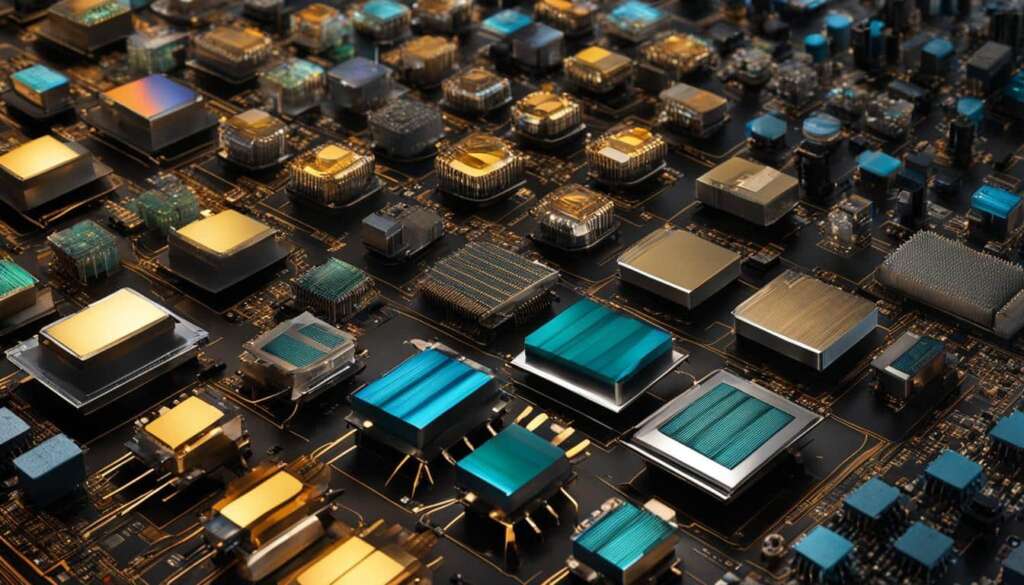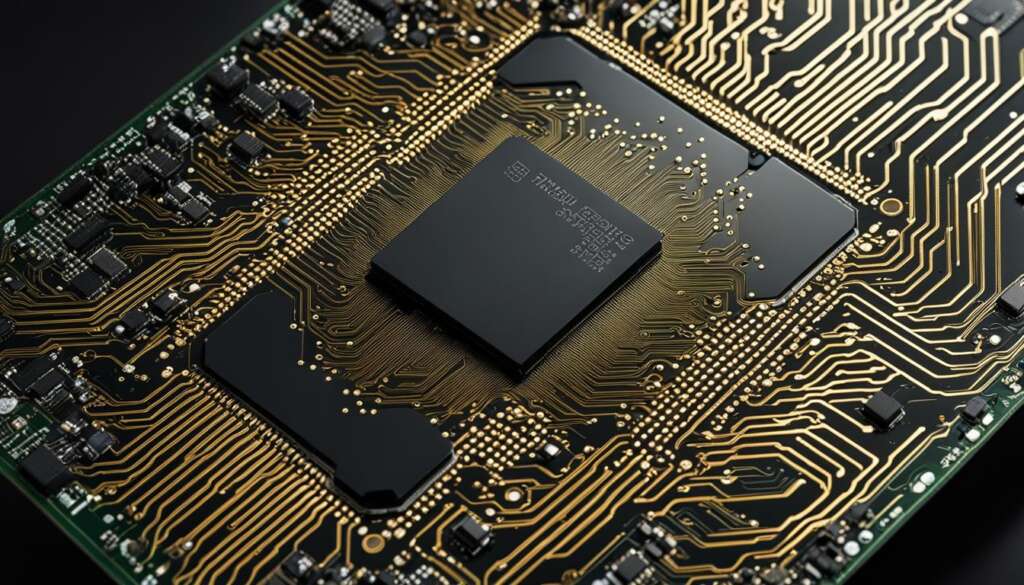Table of Contents
Data centres have become one of the world’s fastest-advancing industries, driving the energy transition to renewables. Despite a significant increase in internet users and traffic, global energy use attributed to data centres has remained relatively flat, thanks to improved infrastructure efficiency and decoupling of energy usage from service demand. The data centre industry is a major buyer of Power Purchase Agreements (PPAs) for renewable energy, contributing to the decarbonisation of local grids and driving the adoption of renewable energy sources. The growing adoption of renewable energy and advancements in data centre design, such as Battery Energy Storage Systems (BESS) and white space cooling optimisation, are further enhancing the sustainability and energy efficiency of data centres.
The Importance of Renewable Energy in Data Centers
Data centers are some of the most energy-intensive buildings globally, consuming large amounts of electricity to power servers, cooling systems, and other IT devices. While data centers currently account for only about 1% of worldwide electricity consumption, their high energy consumption and reliance on fossil fuels contribute to greenhouse gas emissions. The transition to renewable energy sources in data centers is crucial to minimize the environmental impact of digital infrastructure and reduce carbon emissions. By shifting to renewable energy, data centers can significantly reduce their energy use, reliance on fossil fuels, and overall environmental footprint.
The importance of renewable energy in data centers extends beyond environmental considerations. Embracing sustainable energy sources enables data centers to achieve greater energy efficiency and cost savings. Renewable energy options, such as solar, wind, and geothermal power, offer a cleaner and more sustainable alternative to traditional fossil fuel-based electricity. By harnessing these renewable sources, data centers can reduce their carbon footprint, mitigate the environmental impact, and contribute to a more sustainable energy grid.
Furthermore, the adoption of renewable energy in data centers aligns with the increasing demand for corporate social responsibility and environmental stewardship. Companies that prioritize clean energy and sustainable practices in their operations gain a competitive advantage by attracting environmentally conscious customers and investors. By investing in renewable energy, data centers demonstrate their commitment to reducing their environmental impact and contribute to a greener, more sustainable future.
The Benefits of Renewable Energy in Data Centers:
- Minimization of environmental impact and carbon emissions
- Increased energy efficiency and cost savings
- Alignment with corporate social responsibility and environmental stewardship
- Competitive advantage in attracting environmentally conscious customers and investors
Leading Data Centers’ Transition to Renewables
Major data center operators, including Google Cloud, Microsoft Azure, and Amazon Web Services (AWS), are at the forefront of the transition to renewable energy in the industry. These companies have set ambitious sustainability targets and are committed to running their data centers on 100% renewable energy by specific target years, such as 2025 or 2030. They are investing in renewable energy projects, leveraging carbon offsets, and entering Power Purchase Agreements (PPAs) to ensure a sustainable energy mix for their operations.
“We are committed to powering our global data centers with carbon-free energy and are actively working towards achieving our goal of 100% renewable energy by 2030,” said Sundar Pichai, CEO of Google.
These data centers are also improving their energy efficiency, as demonstrated by their low Power Usage Effectiveness (PUE) ratios, indicating more efficient energy use and reduced environmental impact. By optimizing cooling systems, deploying advanced technologies, and implementing energy management practices, these leading data centers are setting an example for the industry. Their efforts not only contribute to global sustainability goals but also showcase the economic viability and environmental benefits of renewable energy in data center operations.
Table: Comparison of Renewable Energy Initiatives
| Data Center | Sustainability Target | Renewable Energy Usage | PUE Ratio |
|---|---|---|---|
| Google Cloud | 100% renewable energy by 2030 | 67% renewable energy usage in 2020 | 1.10 |
| Microsoft Azure | 100% renewable energy by 2025 | 60% renewable energy usage in 2020 | 1.11 |
| Amazon Web Services (AWS) | 100% renewable energy by 2030 | 50% renewable energy usage in 2020 | 1.11 |
By leading the path to renewable energy adoption, these data centers are driving the industry towards a more sustainable future. Their commitment to carbon-free energy and the significant progress they have made in renewable energy usage send a powerful message to other data center operators. Furthermore, their sustainability initiatives create a positive impact on the environment, contribute to local economies by supporting renewable energy projects, and inspire other organizations to follow suit in their renewable energy transition.
The shift to renewable energy in data centers is not just a corporate environmental responsibility but also a strategic business decision. Being powered by renewable energy not only aligns with customers’ growing sustainability demands but also provides a competitive advantage in a green market. As renewable energy costs continue to decline and become more affordable than fossil fuel alternatives, the business case for adopting renewable energy in data centers becomes even more compelling.
In conclusion, Google Cloud, Microsoft Azure, and Amazon Web Services are leading the charge in transitioning data centers to renewable energy sources. Their sustainability targets and investments in renewable energy projects showcase their commitment to a greener future. By setting an example, these data centers are driving the industry towards renewable energy adoption, reducing environmental impact, and reaping the business benefits of clean energy. As the demand for digital services continues to grow, the transition to renewable energy in data centers is essential for a sustainable and eco-friendly digital future.
Implications of Renewable Energy Initiatives for Data Centers
The increasing availability and scalability of renewable energy sources present significant implications for data centers. By embracing clean energy solutions, data centers can minimize their energy consumption and reduce their environmental impact. However, transitioning to renewable energy is not without its challenges. Let’s take a closer look at the implications and obstacles associated with renewable energy initiatives in data centers.
Challenges in Transitioning to Renewable Energy
One of the main challenges in adopting renewable energy sources for data centers is the need for efficient energy storage solutions. Unlike traditional fossil fuel-based power plants, renewable energy sources like solar and wind are dependent on weather conditions. Implementing effective energy storage systems that can store excess energy generated during optimal conditions and distribute it during times of low generation is crucial.
Cost comparison is another factor that data centers need to consider when transitioning to renewable energy. While the cost of renewable energy technologies has been declining, it is essential to evaluate the long-term financial viability of these solutions. Data centers must assess the upfront investment required for renewable energy infrastructure, taking into account operational savings and potential incentives.
The Benefits of Scalable, Clean Energy Solutions
Despite the challenges, the implications of renewable energy initiatives in data centers are promising. By harnessing clean energy sources, data centers can significantly reduce their carbon footprint and contribute to a more sustainable future. Renewable energy solutions offer scalability and can be tailored to meet the increasing energy demands of data centers, ensuring long-term sustainability.
Moreover, embracing renewable energy can also enhance the reputation and brand value of data centers. As sustainability becomes a focus for businesses and consumers alike, operating with clean energy can give data centers a competitive advantage and attract environmentally conscious customers. It also aligns with the growing trend of companies investing in green technologies and solutions.
| Implications | Challenges | Benefits |
|---|---|---|
| Minimize energy consumption | Efficient energy storage solutions | Reduced carbon footprint |
| Reduce environmental impact | Cost comparison | Scalability |
| Enhance sustainability | Competitive advantage |
Overall, the implications of renewable energy initiatives in data centers are significant. Overcoming the challenges associated with transitioning to clean energy is fundamental for data centers to reap the benefits of reduced energy consumption, minimized environmental impact, and enhanced sustainability. As the renewable energy industry continues to advance and costs decrease, data centers have an opportunity to lead the way in driving a more sustainable and eco-friendly digital future.
Sustainable Practices in Data Center Design
Sustainable practices are vital for reducing energy consumption and improving the overall efficiency of data centers. By incorporating energy-efficient design principles and utilizing advanced technologies, data centers can significantly reduce their environmental impact. Some key sustainable practices in data center design include:
Elastic Design
Elastic design principles involve creating flexible and scalable data center infrastructures that can adapt to changing demands. This allows data centers to optimize resource utilization and reduce energy waste. By implementing an elastic design, data centers can scale their operations based on current needs, minimizing energy consumption during periods of low demand.
Cooling Optimization
Cooling is one of the most energy-intensive aspects of data center operations. Implementing advanced cooling optimization techniques, such as white space cooling optimization and AI-based influence maps, can help data centers reduce their cooling-related energy consumption. These technologies enable data centers to optimize airflow and temperature distribution, ensuring efficient cooling while minimizing energy use.
Energy Management
Effective energy management practices play a crucial role in optimizing data center operations. By utilizing intelligent control systems and automation, data centers can operate at their optimal capacity, preventing over-provisioning and reducing energy waste. Energy management systems monitor and optimize energy usage within the data center, ensuring optimal efficiency and minimizing energy consumption.
Integration of Renewable Technology
The integration of renewable technologies, such as Battery Energy Storage Systems (BESS), can enhance the sustainability and resiliency of data centers. BESS stores excess energy generated from renewable sources, allowing data centers to reduce their reliance on the grid during peak demand periods. This not only reduces energy costs but also ensures a consistent power supply, even during grid outages.
Implementing these sustainable practices in data center design can lead to significant energy savings and reduce the overall environmental footprint of data centers. By prioritizing energy efficiency, cooling optimization, efficient energy management, and the integration of renewable technologies, data centers can contribute to a more sustainable and environmentally responsible digital infrastructure.
| Sustainable Practices | Benefits |
|---|---|
| Elastic Design | – Optimal resource utilization – Scalability and adaptability to changing demands |
| Cooling Optimization | – Reduced cooling-related energy consumption – Improved efficiency in temperature management |
| Energy Management | – Optimal energy usage and reduced waste – Cost savings through efficient operations |
| Integration of Renewable Technology | – Enhanced sustainability and resilience – Reduced reliance on the grid |

Business Benefits of Renewable Energy Data Centers
The transition to renewable energy data centers brings numerous business benefits, encompassing sustainability, competitive advantage, and green investment. By investing in sustainable practices, including the use of renewable energy, companies can demonstrate their commitment to environmental stewardship and reducing carbon emissions. Operating with renewable energy data centers allows companies to achieve their sustainability goals and decrease their Scope 3 emissions, contributing to an overall reduction in environmental impact.
Moreover, embracing renewable energy in data centers enhances brand reputation and attracts environmentally conscious customers. In a market increasingly driven by environmental values, operating with renewable energy sources provides a competitive edge and positions companies as leaders in the green market. This differentiation can lead to increased customer loyalty and a positive impact on the bottom line.
Additionally, investing in renewable energy data centers offers long-term cost savings. As the cost of renewable energy continues to decline, companies can benefit from reduced energy expenses and achieve a strong return on investment. By reducing reliance on fossil fuels, companies are less susceptible to fluctuations in energy prices and can establish a more stable and predictable energy cost structure. This financial stability and long-term cost savings further contribute to the business advantages of renewable energy data centers.
Overall, transitioning to renewable energy data centers not only aligns with environmental and sustainability goals but also provides tangible business benefits, including a competitive advantage, enhanced brand reputation, and long-term cost savings. By embracing renewable energy and sustainable practices, companies can contribute to a greener and more sustainable future while reaping the rewards of a forward-thinking and environmentally responsible approach.
Table: Comparison of Business Benefits in Renewable Energy Data Centers
| Business Benefits | Description |
|---|---|
| Sustainability | Demonstrates environmental stewardship and commitment to reducing carbon emissions. |
| Competitive Advantage | Enhances brand reputation and attracts environmentally conscious customers, providing a differentiation in the market. |
| Long-Term Cost Savings | Reduces energy expenses and establishes a stable and predictable energy cost structure, leading to financial stability. |
Leading the Path to a Sustainable Digital Future
Data centers play a vital role in the digital infrastructure, powering the services and applications that have become essential in our modern world. However, the energy consumption of data centers and their reliance on fossil fuels have raised concerns about their environmental impact. To address this, the industry is taking essential steps towards a sustainable digital future, focusing on net-zero emissions, energy efficiency, decarbonization, innovative solutions, and environmental responsibility.
One of the key goals of the data center industry is achieving net-zero emissions. By transitioning to renewable energy sources and implementing energy-efficient practices, data centers can significantly reduce their carbon footprint. This involves shifting to clean energy sources such as solar, wind, and geothermal power, as well as optimizing energy use through advanced cooling and energy management systems. Through these efforts, data centers are actively working towards minimizing their environmental impact and contributing to the overall global goal of achieving net-zero emissions.
Energy efficiency is another crucial aspect of data center sustainability. By improving the efficiency of their operations, data centers can minimize energy wastage and reduce their overall energy consumption. This includes utilizing advanced technologies like artificial intelligence and machine learning to optimize cooling systems, implementing intelligent control and automation, and adopting elastic design principles that allow for scalability and efficient resource utilization. These energy-efficient practices not only reduce environmental impact but also enhance cost-effectiveness and resource utilization for data centers.
“Investing in renewable energy data centers offers a clear path towards a more sustainable digital future, where economic growth and environmental responsibility go hand in hand.”
The transition to renewable energy and sustainable practices in data centers requires innovative solutions and ongoing investment in technological advancements. Efforts are being made to improve energy storage systems, develop more efficient renewable technologies, and establish policies that support the clean energy transition. Additionally, data center operators are taking on the responsibility of driving change by setting sustainability targets and investing in renewable energy projects. These collective efforts are crucial in shaping a sustainable digital future that prioritizes environmental responsibility and minimizes the carbon footprint of the industry.
| Environmental Responsibility in Data Centers | Benefits |
|---|---|
| Reduction of greenhouse gas emissions | Positive environmental impact |
| Enhanced brand reputation and customer attraction | Competitive advantage in the green market |
| Long-term cost savings through renewable energy | Strong return on investment |
By leading the path to a sustainable digital future, data centers are demonstrating their commitment to environmental stewardship and driving the adoption of renewable energy sources. Through a combination of energy efficiency measures, decarbonization efforts, and innovative solutions, the industry is making significant strides towards minimizing its environmental impact. Continued investment, collaboration, and technological innovation will be essential in furthering these efforts and ensuring a greener, more sustainable digital infrastructure for the future.
The Future of Renewable Energy in Data Centers
As the data center industry continues to evolve, the future of renewable energy in data centers holds great promise. Advancements in technology, scalability of renewable solutions, policy support, and a commitment to the clean energy transition are driving the industry towards a more sustainable future.
Technological innovation plays a crucial role in transforming data centers into greener and more efficient operations. Improved energy storage systems are allowing data centers to better harness renewable energy sources and ensure a consistent power supply. Additionally, advancements in cooling and energy management technologies are optimizing energy use and reducing overall consumption.
“The future of renewable energy in data centers looks promising.”
Scalability is another key factor in the future of renewable energy in data centers. As the demand for digital services continues to grow, data centers need to be able to scale their renewable energy solutions to meet the increasing power requirements. This scalability will ensure that data centers can continue to operate sustainably and minimize their environmental impact.
Policy support is vital in driving the clean energy transition in the data center industry. Governments and international organizations are recognizing the importance of renewable energy and providing financial incentives for data centers to adopt clean energy sources. These policies are encouraging data centers to invest in renewable energy technologies and contribute to a more sustainable future.
| Advancements | Scalability | Technological Innovation | Policy Support | Clean Energy Transition |
|---|---|---|---|---|
| Improved energy storage systems | Scaling renewable solutions | Advanced cooling and energy management technologies | Financial incentives for clean energy adoption | Reduction of environmental impact |
| More efficient renewable technologies | Meeting increasing power requirements | Optimized energy use and reduced consumption | Government support for renewable energy projects | Transition to sustainable power sources |
| Enhanced resiliency and sustainability |
The future of renewable energy in data centers is bright, with advancements in technology, scalability, and policy support driving the industry towards a more sustainable and eco-friendly future. By embracing renewable energy sources and continually investing in innovation, data centers can play a vital role in reducing the environmental impact of the digital industry and ensuring a cleaner and greener world for future generations.
Conclusion
The shift towards renewable energy in data centres is a crucial step in addressing the environmental impact of the digital industry. Data centres have made significant progress in reducing energy consumption, improving efficiency, and transitioning to sustainable energy sources. Companies like Google, Microsoft, and AWS are leading the way by setting ambitious sustainability targets and investing in renewable energy projects.
By embracing renewable energy and implementing sustainable practices, data centres can contribute to a greener and more sustainable digital future. The adoption of clean and alternative energy sources such as solar, wind, and geothermal power, along with advancements in energy storage systems and cooling optimization, can further enhance the energy efficiency and environmental impact of data centres. These efforts not only benefit the planet but also provide businesses with a competitive advantage in the growing green market.
As renewable energy technology continues to advance and become more affordable, the future of renewable energy in data centres looks promising. Governments and international organizations play a crucial role in driving the clean energy transition by providing policy support and financial incentives. With ongoing innovation and collaboration, data centres can lead the way towards a sustainable and eco-friendly digital future, contributing to the global efforts to combat climate change and reduce carbon emissions.
FAQ
What is the role of renewable energy in data centers?
Renewable energy plays a crucial role in data centers by reducing their environmental impact and carbon emissions. It allows data centers to minimize their reliance on fossil fuels and transition to clean and sustainable power sources.
How are major data center operators transitioning to renewable energy?
Major data center operators like Google Cloud, Microsoft Azure, and Amazon Web Services are leading the transition to renewable energy. They are setting ambitious sustainability targets, investing in renewable energy projects, and entering Power Purchase Agreements to ensure a sustainable energy mix for their operations.
What are the business benefits of renewable energy data centers?
Operating with renewable energy data centers demonstrates environmental stewardship, contributes to sustainability goals, and reduces Scope 3 emissions. It enhances brand reputation, attracts environmentally conscious customers, and provides long-term cost savings as renewable energy costs continue to decline.
How can data centers improve energy efficiency?
Data centers can improve energy efficiency through design practices like elastic design principles and elaborate cooling optimization. Advanced technologies such as white space cooling optimization and AI-based influence maps can optimize energy use and reduce cooling-related energy consumption. Effective energy management practices, including intelligent control and automation, also play a role in reducing energy waste.
What are the challenges in transitioning data centers to renewable energy?
Challenges in transitioning data centers to renewable energy include energy storage, economic considerations, infrastructure limitations, and land use conflicts. However, ongoing innovations in energy storage, financing mechanisms, infrastructure development, and efficient land use can help overcome these challenges and make renewable energy a viable option for data centers.
What does the future hold for renewable energy in data centers?
The future of renewable energy in data centers looks promising with advancements in energy storage systems, more efficient renewable technologies, and advancements in cooling and energy management. Policy support from governments and international organizations is also crucial in driving the clean energy transition and providing financial incentives for data centers to adopt renewable energy sources.
Source Links
- https://www.ispartnersllc.com/blog/data-centers-renewable-energy/
- https://www.forbes.com/sites/siemens-smart-infrastructure/2023/03/13/how-data-centers-are-driving-the-renewable-energy-transition/?sh=734e08b94214
- https://www.cedara.io/post/tracking-the-transition-to-renewable-energy-in-the-data-center-industry




